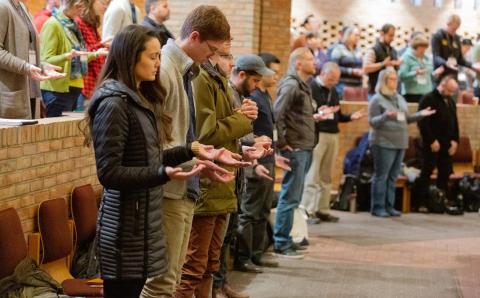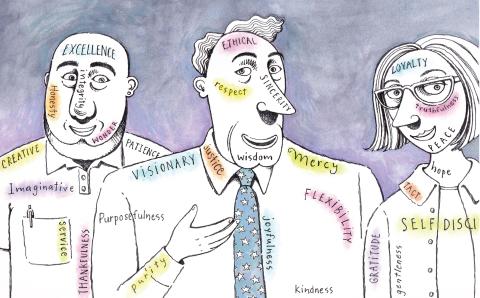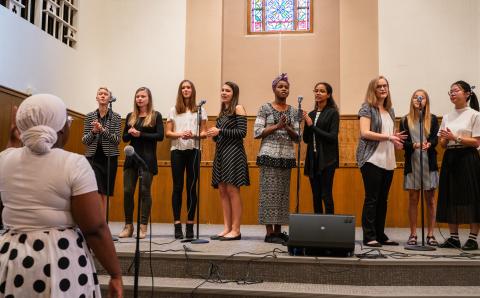“How do you reconcile who God seems to be in the Old Testament—angry and vengeful—with who God seems to be in the New Testament—abounding in love?”
What makes us think that God is portrayed differently in the Old Testament than in the New Testament? Some of the most moving depictions of God as a deeply intimate and powerful lover are found in the Old Testament. In the New Testament, it is Jesus himself who is often described as having some of the most angry, bordering on violent confrontations with people. Throughout the entire Bible, God is described as having a wide range of human emotions.
I believe there are three things to keep in mind here. First, this question is a smokescreen. Our dominant North American culture believes we are in control. This secular mindset leads us to assume that because we can control much of the world through our science, technology, economics, and politics, there’s nothing else that could possibly lie outside of our control. We are allergic to the idea that God could be angry or violent because that would mean there is someone we will never control. It’s far easier to maintain our belief in our control of the world by claiming that the Bible’s portrayal of God is inconsistent and therefore unreliable. We will only allow God to be God if God stays in God’s place, under our control. The question allows us to carry on believing that lie about ourselves.
Second, affluent and comfortable North Americans are disconnected and insulated from the harsh realities of both the ancient and the contemporary world. We struggle with the Bible’s depictions of God as angry or violent because we read them from our middle-class lives. Many in our dominant culture are divorced from this deeply broken world, full of deadly violence and soul-crushing injustice. Most of today’s world lives as nearly all of the ancient world did: under the grinding realities of a barbaric world. Anyone who has a clear vision of the state of the world as well as a heart of compassion and justice would be angry at what has happened to God’s masterpiece of creation! Most of God’s angry violence in the Old Testament is actually God’s decisive intervention of love, a shocking interruption in the status quo to bring about liberation and justice for the oppressed. From the plagues in Egypt to Jesus causing a riot in the temple, God has a habit of bringing joy and hope to those whose lives are being squandered underneath the grimy boot of abusive power. Sometimes we object to God’s righteous anger because it might spell the end of our affluence and comfort, especially if our way of life is the dehumanizing result of injustice anywhere.
Third, the American biblical scholar Greg Boyd reminds us that part of God accommodating God’s self to us on this “long road of redemption” (Our World Belongs to God, Article 18) is by using the words of sinful human beings to write his Word. Our ancestors millennia ago were a people immersed in a world of tribal warfare. It was simply taken for granted that the gods approved of wanton human slaughter. This violent human mindset is reflected in Scripture. Despite our fallen and rebellious habits, God reliably tells the beautiful story of his worldwide love in Scripture. But if we take a casual look around the world today we see that we haven’t come very far; we’re still struggling to learn the transformational lesson of love displayed in Jesus. Thanks be to God that by grace God works with us where we’re at!
About the Author
Michael Wagenman is the Christian Reformed campus minister at Western University in London, Ont., where he invites undergraduate students to put their faith into loving service and mentors graduate students. His most recent book is The Power of the Church: The Sacramental Ecclesiology of Abraham Kuyper (Wipf &Stock, 2020).







